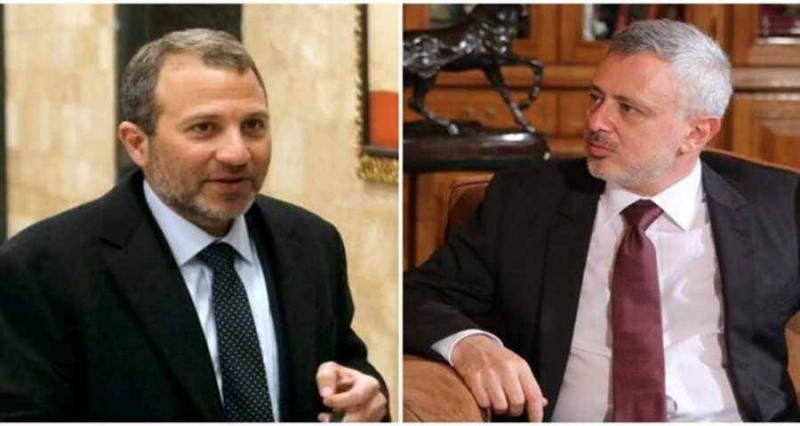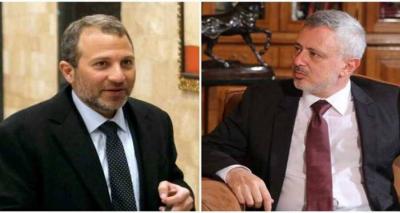Although the formation of a new government and the discussions surrounding the caretaker government dominate current interests and debates, most parties seem to be rotating around the imminent presidential elections. The constitutional deadline for electing a new president is approaching, beginning in a month and a half. The president must be elected within a maximum of two months, but this procedural deadline does not necessarily start on the first day. It may need to exhaust most, if not all of it. It is indeed possible—as has occurred three times before and after the Taif Agreement—that the process may pass without the election of a new president. However, it can also happen that the election takes place outside this timeframe as a de facto situation, resulting in a violation of constitutional adherence.
Currently, all parties are engaging less in forming a new government or revitalizing the caretaker government and are increasingly focused on the presidential election, which appears to be largely in the hands of a single faction: the Shiite duo. The roles are shared between Parliament Speaker Nabih Berri and Hezbollah Secretary-General Hassan Nasrallah. The former has the exclusive constitutional authority to call for a presidential election according to Article 73, from the very first day of the constitutional period (midnight of August 31) until the preceding midnight of the tenth day to its conclusion when the council becomes in obligatory session without an invitation. As for the latter, he manages the presidential election process, wielding internal power that allows him to have the final say in everything happening in the country. This power surplus does not require further evidence, with its last manifestation occurring last Wednesday evening.
There is no restriction that obliges the Speaker of the Council to call for a presidential election session on the first day of the constitutional period, nor in the first week or even in the first month; it is, however, mandatory before the tenth day before he loses this authority. Therefore, calling for a session often becomes a product of efforts made by the Speaker to garner broad consensus on a new president for the country, as well as on managing a competitive election process. On the other hand, Hezbollah seems to be the only party with two public candidates for the presidency, while no other factions have openly declared their presidential candidates. Some hint at potential candidates, often described as natural, but they struggle to declare their candidacy.
Before the parliamentary elections held on May 15, engagement in the presidential elections began with a breakfast meeting that brought together Nasrallah, MP Gebran Bassil, and former MP Sleiman Franjieh, the two northern competing candidates, which took place on April 8. They discussed what would follow the parliamentary elections the following month. Since then, this meeting has been seen as a kickoff signal. This understanding was reinforced by a statement made by Bassil less than two months later, on May 22, during a rally declaring victory in the parliamentary elections, referring to Franjieh as “remaining authentic.” This was a clear indication of some agreement reached between him and his rival in Nasrallah’s hospitality.
Since both are candidates, and because they derive their electoral strength from Nasrallah and his party, it is reasonable to affirm that resolving their competition is in the hands of this reference, accustomed to mediating disputes between them. This happened in 2015 when President Saad Hariri nominated Franjieh for the presidency, but Hezbollah favored Michel Aoun's candidacy over his. The latter stepped back while the former advanced to the presidency.
When the trilateral breakfast occurred, there were no details disclosed regarding their discussions, apart from fleeting mentions of the presidential and parliamentary elections. As time went by, the meeting drew near to the scheduled deadlines, and the exchange of cordial and open gestures between the two rival allies made it increasingly viable—and perhaps necessary—to indirectly disclose some aspects of their discussions.
It was mentioned that during the trilateral meeting, Nasrallah addressed Bassil and Franjieh together, asserting that Hezbollah places great importance on the next presidential elections, especially as they approach parliamentary elections. However, he emphasized that the party is keen on its friends and allies and to stand by them.
He noted that both are his allies. He previously committed to standing by Aoun, and when the party pledged its support to him, it was with Franjieh's approval. Today, the party faces a new commitment regarding Franjieh, which he wants to happen with Bassil's approval, similar to what occurred six years ago.
What was conveyed from Nasrallah was that if Franjieh is not elected in the upcoming presidential elections, he may not get another chance later, whereas Bassil would. He added, addressing the leader of the Free Patriotic Movement: “Our proposal is for the next presidency to go to Franjieh, while you would be a full partner in the upcoming term.” This would achieve two goals: your partnership in the next phase and your support for the president, hence revisiting the role of the movement and defending against the criticisms aimed at you recently.
The commitment of 2015 is repeated in 2022 but in reverse. Bassil's response was a half-hearted conditional approval, awaiting an appropriate time to discuss this option within the Free Patriotic Movement, which ultimately will not obstruct the decision of Hezbollah's Secretary-General.
Talking about the presidential issue lasted only minutes. The lengthy breakfast subsequently dealt with local and regional files beyond the presidential concern. Nasrallah's position indicated that he has largely decided, based on current realities, to support the former MP from Zgharta, a decision that does not face any fundamental or prohibitive objections. In 2015, he endorsed him after Hariri's nomination, with support from Berri and Walid Jumblatt. Hezbollah does not await the approval of the Lebanese Forces party nor does it need it. Bassil’s joining this camp, following the gathering of allies around Franjieh's candidacy, would make his election inevitable in the second round of voting with an absolute majority, once 86 deputies, who constitute the qualified two-thirds majority, gather to open the session and conduct successive rounds of voting.
None of the parties currently discusses the possibility of boycotting these elections. At best, they express their innocence and good intentions, at least. What lies at the heart of Hezbollah’s will to nominate Franjieh is its pursuit—part of which is reportedly part of its upcoming strategy, whose first glimpses have begun—to surround him with broad political support. The Free Patriotic Movement's openness to Jumblatt, along with the subsequent meeting between Bassil and MP Fadi Al-Khazen, in addition to what is expected from similar steps in later dates, all these are nothing but links in a chain.




